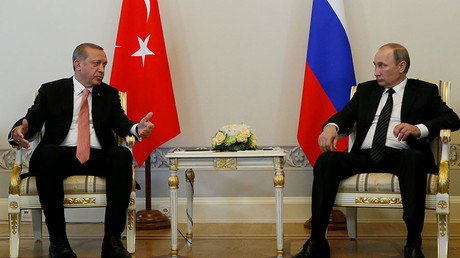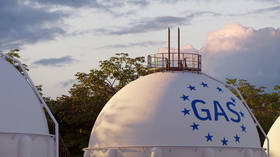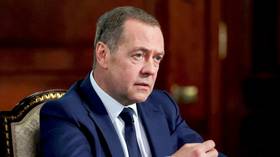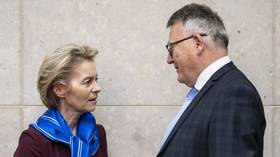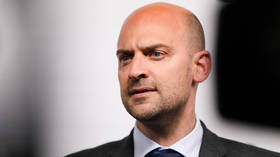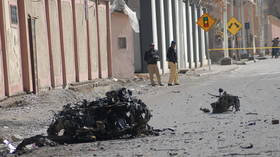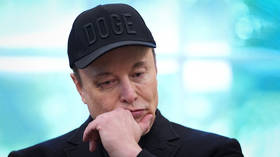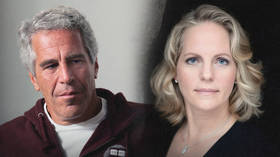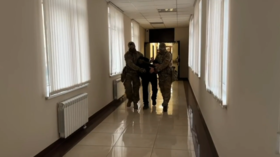Turkish diplomats slam NATO for ‘trying to dictate terms’ of Ankara’s foreign policy
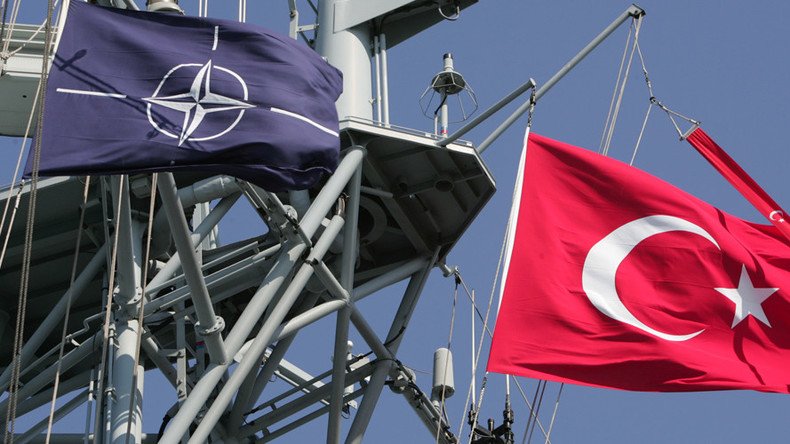
Turkey’s ambassador to Russia has lashed out at NATO, saying the alliance has no right to dictate foreign policy to Ankara. Meanwhile, Turkey’s foreign minister reiterated that his country has options outside of NATO when it comes to defense cooperation.
Turkish Ambassador Umit Yardim made his comments after a meeting between Turkish President Recep Tayyip Erdogan and President Vladimir Putin in St. Petersburg on Tuesday.
The two heads of state were trying to improve diplomatic relations between the two countries, which hit rock bottom after Turkey shot down a Russian warplane over Syria in November.
“In no way can NATO limit our contacts with other countries... It means NATO has no right to dictate its terms and tell us who we should or should not meet and communicate with,” Yardim said on Thursday, as cited by RIA Novosti.
However, Yardim said that Turkey was open to having good relations with everyone, including the EU, and Ankara still had aspirations of joining the bloc.
“We are not thinking about leaving NATO and there is no talk about us abandoning dialogue with the EU. This is merely speculation,” Yardim said, according to TASS. He did stress, however, that Turkey will “conduct its own independent foreign policy.”
Meanwhile, Turkish Foreign Minister Mevlut Cavusoglu delivered another strong rebuke to the alliance, saying that Ankara could consider options outside of NATO in terms of defense cooperation.
In an interview with the Anadolu news agency on Wednesday, Cavusoglu said that Turkey and Russia will look to establish a joint military, intelligence, and diplomatic mechanism, while maintaining that this would not come at the expense of good relations with NATO.
During this visit, we confirmed our mutual common will to carry forward our relations w/ Russia to higher level pic.twitter.com/Ia4xTpMeTF
— Mevlüt Çavuşoğlu (@MevlutCavusoglu) August 9, 2016
“Turkey wanted to cooperate with NATO members up to this point,” the minister said. “But the results we got did not satisfy us. Therefore, it is natural to look for other options. But we don’t see this as a move against NATO,” he told Anadolu.
NATO has reacted with caution to the rapprochement between Moscow and Ankara, saying that Turkey’s membership in the alliance is not in question.
In view of reports following the attempted coup, read my statement on #Turkey: https://t.co/ISJ2dXMQrk#NATOpic.twitter.com/MDMumd15Et
— Oana Lungescu (@NATOpress) August 10, 2016
Speaking on Wednesday, NATO spokeswoman Oana Lungescu said that “Turkey is a valued ally, making substantial contributions to NATO’s joint efforts.”
Lungescu added that NATO’s secretary general, Jens Stoltenberg, had strongly condemned the coup.
“NATO counts on the continued contributions of Turkey, and Turkey can count on the solidarity and support of NATO.”
‘Astonishing NATO nations did not come to aid of Erdogan govt’ - @afshinrattansihttps://t.co/ZziPzq6WBYpic.twitter.com/CS6xrlFQmo
— RT (@RT_com) July 17, 2016
However, the lukewarm backing for Turkey coming from the West and EU following an unsuccessful power grab against Erdogan has infuriated Ankara.
Turkey has been incensed by the US’ refusal to hand over cleric Fethullah Gulen, who Ankara believes organized the attempted coup. The Turkish government wants Gulen, who lives in self-imposed exile in Pennsylvania, to be extradited to face trial at home, but Washington has repeatedly refused, saying it needs clear evidence that there was a link between Gulen and the attempted coup before it will consider complying with Turkey’s request.
